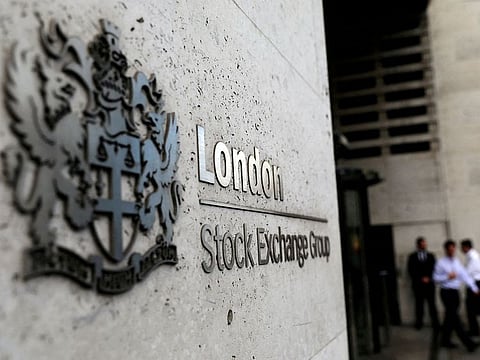London loses crown of biggest European stock market to Paris
Within three weeks of Truss becoming PM, UK’s markets had lost roughly $500 billion

Britain lost its title of Europe’s largest equity market to France as economic growth concerns weigh on UK assets while China’s relaxation of Covid rules boosts French luxury shares.
The combined market capitalisation of primary listings in Paris overtook that of the London in US dollar terms, according to an index compiled by Bloomberg. Domestically-focused UK shares have slumped this year, while French luxury goods-makers like LVMH SE and Gucci owner Kering SA have recently been boosted by optimism over a potential easing of China’s Covid Zero policy.
Currency movements have also worked in Paris’s favour. Former UK Prime Minister Liz Truss’s mini-budget of unfunded tax cuts in September and subsequent storm in UK financial markets sank sterling to the lowest level since 1985 against the greenback.
UK midcaps have been crushed this year on predictions that Britons would be squeezed harder by rising energy costs than elsewhere, while British homeowners are facing a surge in interest payments given the widespread issuance of flexible-rate mortgage loans in the country. Within about three weeks of Truss becoming prime minister, UK’s stock and bond markets had lost roughly $500 billion in combined value, with investor confidence shattered by the tax-cutting budget.
That’s left the mid-cap FTSE 250 index trading at a 30 per cent discount to the MSCI World benchmark, the most since the dotcom period in the early 2000s, Goldman Sachs Inc. wrote earlier this month. “We think this discount is deserved given the weak outlook for UK growth, the level of the pound and the downside risks,” strategist Sharon Bell said.
The market cap gap between the UK and French stock markets has been narrowing from about $1.5 trillion since Britons voted to leave the European Union back in 2016. British equities are now worth about $2.821 trillion compared with about $2.823 trillion for French equities, according to data compiled by Bloomberg.
China reopening
It’s not all negative news for UK equities, however, with the pound’s weakness spurring outperformance for the country’s large-caps thanks to their export revenues. The FTSE 100 index is down just 0.4 per cent this year versus a 17 per cent plunge for the FTSE 250.
Meanwhile, a Stoxx index tracking 10 European luxury shares gained 8 per cent on Thursday and Friday last week, its biggest two-day rise since March 2020. The French stock market is dominated by luxury powerhouses including Louis Vuitton owner LVMH, which is worth about $360 billion and is Europe’s biggest company by market value.
Alongside a broad market rally spurred by softer-than-expected US inflation data, luxury’s rebound followed news that China is adjusting its strict Covid policies. Chinese shoppers accounted for 35 per cent of global luxury good demand before the pandemic, although their share may have only been half of that in 2022, Bloomberg Intelligence estimates.
Sign up for the Daily Briefing
Get the latest news and updates straight to your inbox



